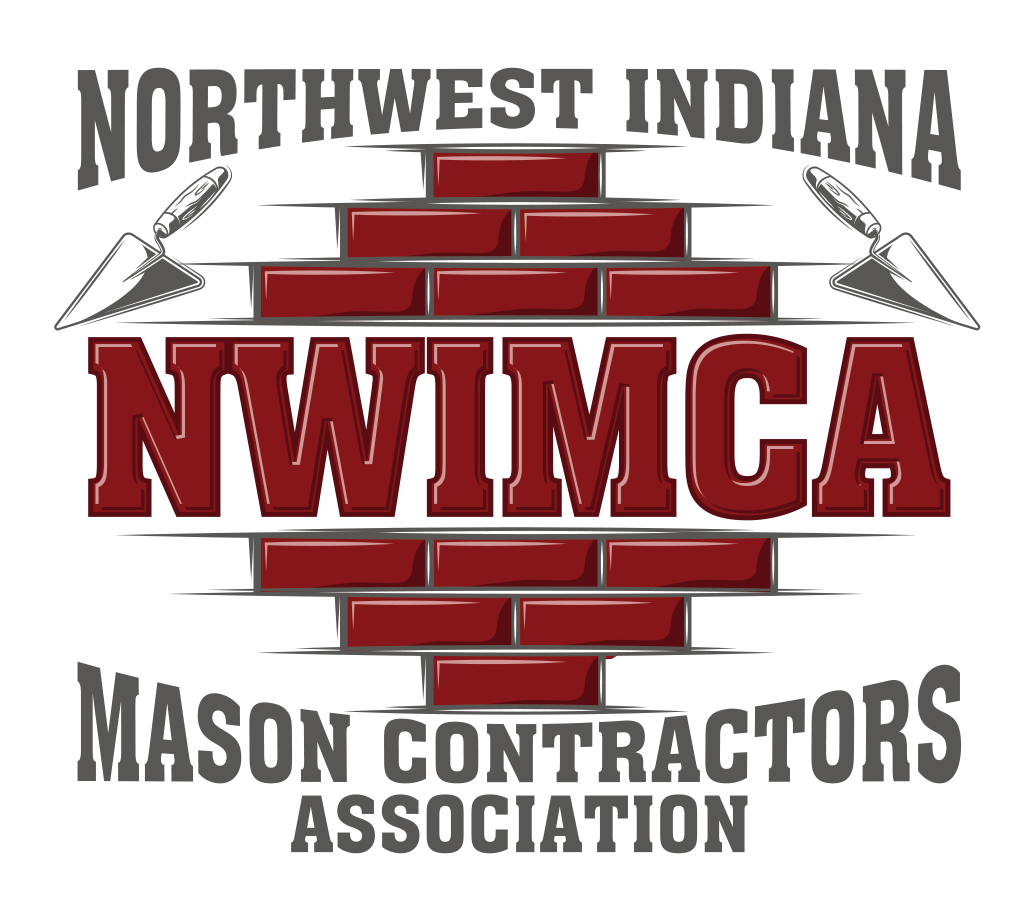Masonry Continuing
Education Program
February 23, 2024 | 8AM to 2:30PM | FREE to Attend
Construction Advancement Foundation (CAF) | 6050 Southport Rd | Portage
The Northwest Indiana Mason Contractors Association (NWIMCA) is proud to invite you to the Masonry Continuing Education Program on February 23, 2024. This program brings together the architectural, design, and masonry communities for opportunities to collaborate and learn together.
Activities will include:
Insights about masonry materials for architects, including how to incorporate these materials into building designs.
Best practices about flashing, moisture control, and preventing damage caused by moisture.
Information about the movement characteristics of structural masonry wall systems.
An introduction to air and water-resistive barriers and how they work.
Plus, hands-on masonry basics!
BE SURE TO DRESS ACCORDINGLY
This free program will take place at the Construction Advancement Foundation’s facility in Portage from 8:00AM to 2:30PM with breakfast and lunch included.
Tickets
Attendee Tickets
FREE
Sponsorships Levels
Lunch Sponsor
$500
Company logo on event website, signage, and brief introduction of your company, PLUS marketing table at program.
Gold Sponsor
$250
Company logo on event website, signage, and name recognition at event.
Would Should Attend?
Architects & Designers
Engineers
Contractors
Specification Writers
Construction Managers
Schedule
This program meets the Architects International Association (AIA/CES) criteria for continuing education. AIA members attending this event will receive up to 5 H/S/W learning units, which will be reported directly to the AIA.
This program is funded by the Mason Contractors Promotional Fund.
Presenters
Joe Alberts
-
Moisture management is essential to protecting a building and its occupants from experiencing damage caused by excessive moisture accumulation. Building materials exposed to prolonged damp conditions can lead to mold, bacteria growth, steel corrosion, and failure of adhesives. Well-designed, properly installed masonry flashing systems are essential components of an overall moisture management strategy. Join us to learn best practices for flashing at critical locations like base of wall, sills, window heads, copings, and roof-to-wall interfaces. You'll walk away with a better understanding of appropriate flashing materials, weeps, ventilation strategies, and drip edges to help you create an optimal design and installation.
Shannon Perry-Riley
-
Architects are challenged to create original designs while meeting budgets and applicable building codes. With a myriad of materials and systems available it can be difficult to know what to specify.
This Interstate Brick seminar reveals uses of large brick veneer and structural clay masonry that most designers never knew were possible to expand your portfolio of building envelop solutions. The ideas presented will illustrate opportunities to save time and money while being compliant and creative.
Scott Walkowicz
-
Learn about the movement characteristics of structural masonry wall systems. We will compare the differences between movement joints in architectural veneer and in structural reinforced masonry. There are many types of masonry movement joints and strategies. After the session you will be able to identify best practices for detailing movement joints to accommodate and/or restrict masonry material movement.
Chris Tobias
-
An introduction to air and water-resistive barriers and how they work. The role of air leakage in causing mold in walls and high energy costs is explained. The program includes discussion of the different products on the market. It also explains why contemporary building envelopes need these products now more than ever before.
Joe Alberts
-
The intent of this program is to provide Architects, Engineers, Code Inspectors with an enhanced ability to design/analyze the constructability of a typical masonry wall by observing proper installation techniques. A station will allow designers to physically apply mortar to bricks and build a wall with the help of masonry instructors to further develop their understanding of the skill and craft involved.












